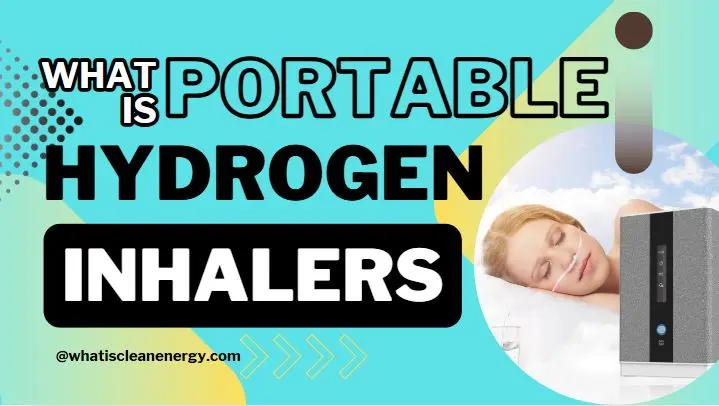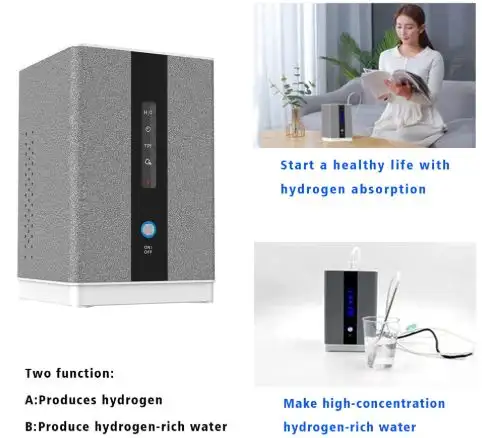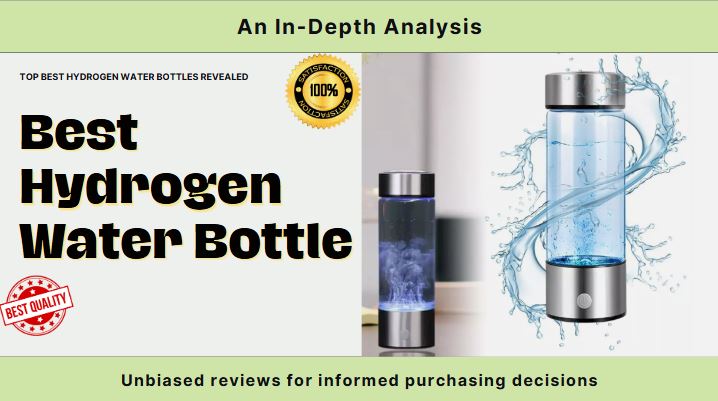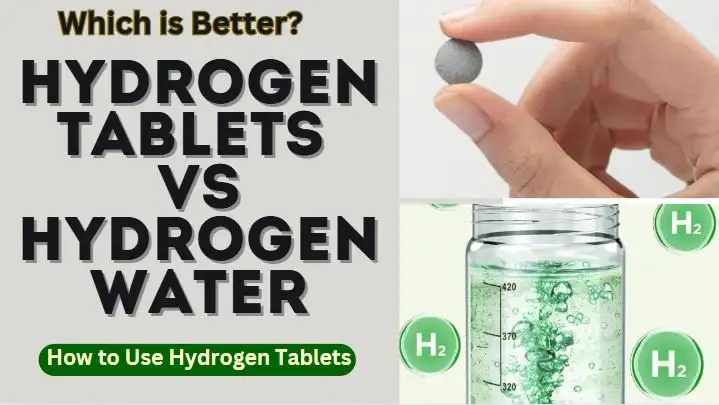Portable hydrogen inhalers are gaining popularity for their potential health benefits. These devices allow users to inhale hydrogen gas, which is believed to have antioxidant properties. This article will explain what portable hydrogen inhalers are, how they work, their benefits, and how to use them. We’ll also discuss some considerations when choosing a hydrogen inhaler.
What Are Portable Hydrogen Inhalers?
Portable hydrogen inhalers are small, handheld devices that produce hydrogen gas. Users inhale this gas through a mask or a nasal cannula. The idea is that hydrogen gas can help reduce oxidative stress, which is linked to various health issues.
How Do Portable Hydrogen Inhalers Work?
Hydrogen inhalers use electrolysis to split water into hydrogen and oxygen. The device then delivers the hydrogen gas to the user. The simple process usually involves filling the device with water and turning it on. The hydrogen gas is then ready to be inhaled.
Benefits of Hydrogen Inhalation

Hydrogen inhalation is believed to offer several health benefits. Here are some of the most commonly cited advantages:
1. Antioxidant Properties
Hydrogen gas is a powerful antioxidant. It can neutralize harmful free radicals in the body. Free radicals are unstable molecules that can damage cells and contribute to aging and diseases.
2. Anti-Inflammatory Effects
Hydrogen gas may help reduce inflammation. Inflammation is a natural response to injury or infection, but chronic inflammation can lead to various health problems. By reducing inflammation, hydrogen gas can support overall health.
3. Improved Energy Levels
Some users report feeling more energetic after using hydrogen inhalers. This could be due to reduced oxidative stress and inflammation, which can drain energy.
4. Neuroprotective Benefits
Inhalation of hydrogen gas has been shown to suppress brain injuries and protect against neurological disorders.
5. Pain Reduction
Hydrogen inhalation may help reduce pain, making it a potential therapy for chronic pain conditions.
6. Improved Athletic Performance
Some research suggests that hydrogen inhalation can enhance athletic performance and aid in recovery after exercise.
7. Supports Overall Health
Hydrogen inhalation can contribute to overall health and well-being by boosting the body’s natural antioxidant system.
8. Enhanced Recovery
Athletes and active individuals may benefit from faster recovery times. Hydrogen gas can help reduce muscle fatigue and soreness, allowing for quicker recovery after exercise.
How to Use a Portable Hydrogen Inhaler
Using a portable hydrogen inhaler is straightforward. Here are the basic steps:
Step 1: Fill the Device with Water: Most hydrogen inhalers require distilled water. Fill the water tank according to the manufacturer’s instructions.
Step 2: Turn on the Device: Once the device is filled, turn it on. It will start producing hydrogen gas.
Step 3: Inhale the Gas: Inhale the hydrogen gas using the mask or nasal cannula provided. Sessions typically last 15 to 30 minutes.
Step 4: Clean the Device: After use, clean the device as per the instructions to ensure it remains in good working condition.
Choosing the Right Hydrogen Inhaler
When selecting a portable hydrogen inhaler, consider the following factors:
1. Hydrogen Concentration
Check the hydrogen concentration the device can produce. Higher concentrations may offer more significant benefits.
2. Battery Life
Look for a device with a long battery life, especially if you plan to use it frequently or take it on the go.
3. Ease of Use
Choose a device that is easy to operate and maintain. User-friendly controls and simple cleaning procedures are essential.
4. Portability
Consider the size and weight of the inhaler. A compact and lightweight device is more convenient for travel and daily use.
5. Brand Reputation
Choose a reputable brand with positive reviews and reliable customer support. This can help ensure you’re getting a quality product.
6. Device Output
Depending on your health condition, you may need different hydrogen output levels. For example, neurodegenerative disorders may require higher output devices (around 3 liters per minute), while conditions like skin rejuvenation may need lower output devices (450 ml to 1.5 liters per minute).
7. Safety Features
Check for safety features such as automatic shut-off, overpressure protection, and alarms to ensure safe usage.
Recommended Portable Hydrogen Inhalers
Here are some top-rated portable hydrogen inhalers available on Amazon, along with their pros and cons:
Plafnio Portable Hydrogen Machine for Inhalation and Hydrogen Water
This compact device offers dual output for hydrogen inhalation and hydrogen water generation. It features a 240mL/min flow rate and provides high-purity (99.996%) hydrogen gas, which is chlorine-free and ozone-free. The portable hydrogen inhaler machine is suitable for home, travel, and car use.
Pros and Cons
✅ Dual-Functionality: Can be used for both inhalation and hydrogen water generation.
✅ High Purity: Produces 99.996% pure hydrogen gas.
✅ Portable: Compact size and easy to carry, perfect for travel.
✅ Versatile: Can infuse hydrogen into various types of water.
❌ Price: May be considered expensive for some users.
❌ Power Source: Needs to be plugged in, limiting its use in certain situations.
AquaGreen Home Portable Hydrogen Inhalation Machine
This portable device offers dual-output for both hydrogen inhalation and hydrogen water generation. It features a 150mL/min flow rate, providing high-purity (99.99%) hydrogen gas, which is chlorine-free and ozone-free. The machine is suitable for home, travel, and car use.
Pros and Cons AquaGreen Home Portable Hydrogen Inhalation Machine
✅ High purity hydrogen (99.99%)
✅ Compact and portable design
✅ Includes multiple nasal cannulas
❌ Lower hydrogen flow rate compared to other models
❌ Limited advanced features
Safety Considerations
While hydrogen inhalation is generally considered safe, it’s essential to follow some precautions
Safety Tip-1. Research and Studies
Many studies indicate that inhaling hydrogen gas at appropriate doses is safe for humans. Hydrogen gas is non-toxic and can permeate cells, tissues, and blood without causing adverse effects. It has been shown to have antioxidant and anti-inflammatory properties, which can contribute to overall health improvements.
Safety Tip-2. Appropriate Dosage
It’s important to use hydrogen inhalers according to the recommended guidelines. For healthy individuals, inhaling hydrogen gas for 60 to 120 minutes daily is typically sufficient. Those with chronic conditions may need to adjust the duration and should consult a healthcare professional for specific advice.
Safety Tip-3. Choosing a Safe Device
Ensure you purchase a hydrogen inhaler from a reputable brand. High-quality devices are designed to produce hydrogen gas at safe concentrations and are built with user safety in mind.
Safety Tip-4. Following Instructions
Always follow the manufacturer’s instructions for use and maintenance. This includes using the correct type of water, cleaning the device regularly, and adhering to the recommended inhalation times.
Safety Tip-5. Potential Side Effects
Hydrogen inhalation is generally safe, but it’s essential to remain vigilant for possible side effects. If you experience any discomfort or unusual symptoms, stop using the device and consult a healthcare professional.
Conclusion
Portable hydrogen inhalers offer a convenient way to improve your health potentially. You may benefit from its antioxidant and anti-inflammatory properties by inhaling hydrogen gas. When choosing a hydrogen inhaler, consider factors like hydrogen concentration, battery life, ease of use, and portability. Always consult a healthcare professional before starting any new health regimen. Hydrogen inhalation could be a valuable addition to your wellness routine with the right device and proper use.
Disclosure: This content is reader-supported, as an Amazon Associate, we earn from qualifying purchases. Support us!









